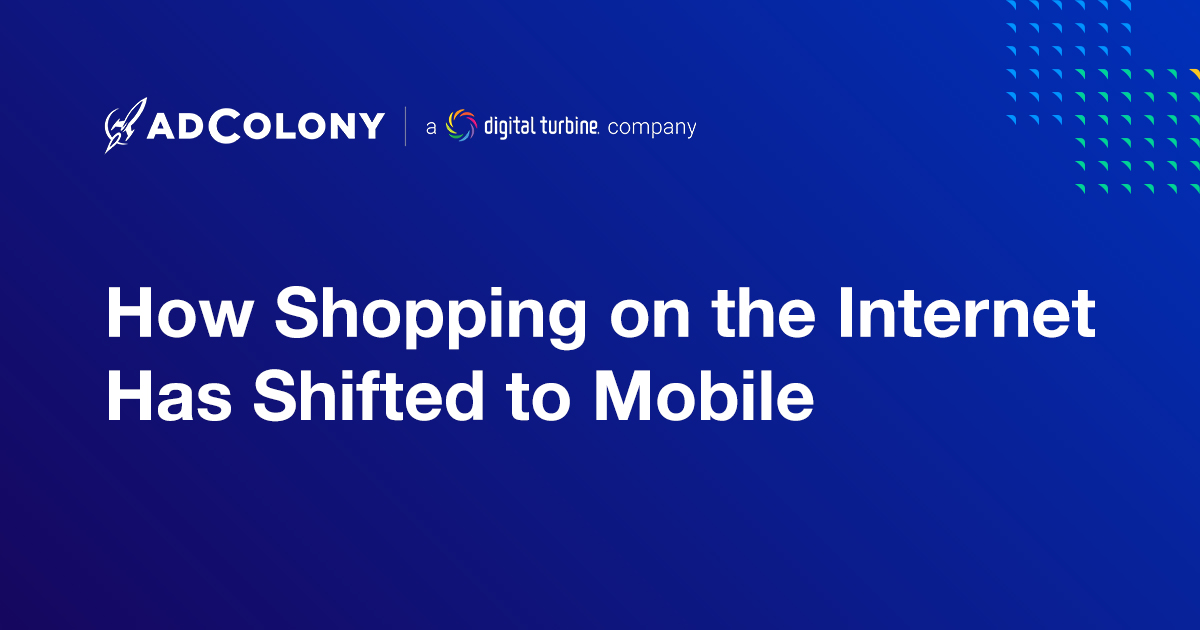Last month, AdColony participated in Harvard Business Review & Bloomberg Businessweek teams’ Turkey Summit 2022, leading a discussion about the shopping preferences of Turkish consumers, the rise of online shopping globally, the increase in mobile shopping, and the prominence of e-commerce mobile applications.
Sales Director of Instant- Play™ Growth Markets EMEA & LATAM Serdar Çelik, together with Tankut Koçyıldır, E-Commerce Lead at PepsiCo Turkey, the panel explored the definition of m-commerce, the rise of m-commerce in comparison with e-commerce, reliability of mobile shopping, and the recall of the ads that seen by consumers on their smartphones or mobile applications.
No one can deny that online shopping has become indispensable, with the inevitable rise of mobile and with improved shopping experiences. Additionally, the number of e-commerce sites increasing day by day, and consumers get the chance to discover the various products with only one click, which has led to huge investment and growth in the sector. Turkey’s unicorn companies have e-commerce sites that reveal the volume of the sector.
Global e-commerce volume is expected to reach $4.4 trillion USD in 2025, and the share of e-commerce in total retail is estimated to rise to 20.8 percent. According to research by Deloitte, when the growth forecasts of e-commerce for 2020-2024 are examined, it is expected that e-commerce in Turkey will increase 2.3 times, increasing by an average of 23.7% every year!
Below are some highlights of AdColony’s “Arise of M-Commerce” panel discussion:
E-commerce has a big slice of the pie in Turkey – Tankut Koçyıldır from PepsiCo noted that everything changes quickly, and it is wood for e-commerce to grow the fire. He added: ‘‘While we were appealing to much smaller audiences, we started to reach much larger audiences. E-commerce has turned into a supportive position for the whole of commerce. The marketplace has expanded and spread to the grassroots. Therefore, the masses started to be segmented, which caused us to attach importance to the personalization of the ads we served. Before the pandemic, this business was already growing very quickly, but it did not attract much attention. After the pandemic, a very new mass has been included in this sector.’’
Mobile lives with us as a new element that leads commerce – Serdar Çelik from AdColony, a Digital Turbine Company, noted that the competition among brands is greater than ever before, questions arise in their minds on how they can come to the fore, how they can capture their target audience, and how they can present their products to the consumers on the right platforms. He also added: ‘‘To reveal how often consumers shop from their mobile devices, what they expect from the product while shopping online, whether they prefer mobile applications or websites we have collaborated research with GlobalWebIndex and reached out to interesting insights. According to the research, 57% of users in Turkey prefer to do their shopping online compared to the store. This points out the great potential of both e-commerce and m-commerce in our country. We can never deny that our smartphones are one of the biggest facilitators of our lives. The fact that we can access the content, product, and platform whenever we want makes smartphones different from all other mobile devices. Besides that, 43% of the respondents stated that they mostly do their online shopping from their smartphones reveals the difference in the use of smartphones. 56% of respondents think mobile shopping is as safe as shopping on a laptop/desktop. Also, 58% of consumers state that they prefer mobile applications in their online shopping proves the practicality of mobile applications compared to the website.’’
M-commerce can be considered as the next step of e-commerce. – Serdar Çelik asked if m-commerce is the next step of e-commerce? Koçyıldır answered: ‘‘It was obvious that m-commerce would rise to the top even before the iPhone was invented. When I was working at Hepsiburada – one of the biggest e-commerce websites and mobile applications in Turkey – in 2014-2015, I remember very well the day when the traffic in the application exceeded the traffic in the web.”
“When we look at it now,” Koçyıldır continued, “60% of all online purchases started to be made from mobile devices. The fact that it is so accessible and easy has made it inevitable for the mobile to become a part of our lives. Now we buy things while getting on the bus, going to the meeting, walking on the road. This will continue to increase as an inevitable trend. Those who invest in mobile will definitely win. Those who adapt their advertising strategies to this trend somehow grow their business and win.’’
Çelik noted that m-commerce and e-commerce cannot be thought of as competing against each other, but m-commerce can be considered as the next step of e-commerce. ‘‘When we look at the advertising investments in Turkey,” he said, “We see that 70% of the digital advertising investments are made for mobile devices. Investments in mobile devices will push this trend even higher.’’
Smartphones are one of the biggest facilitators of our lives – Çelik summarized the importance of the m-commerce world. “The wider phone screens, advanced and easier-to-use applications bring consumers closer to m-commerce. While these developments change user behaviors and preferences, they also enable brands and advertisers to integrate into new platforms. For this reason, we can clearly see why shopping on the internet has shifted to mobile.”
You can access and explore both our panel and all of Harvard Business & Bloomberg Business Sumits’ sessions here.
About Harvard Business Review & Bloomberg Businessweek
Through its flagship magazine, books, and digital content and tools published on, Harvard Business Review aims to provide professionals around the world with rigorous insights and best practices to help lead themselves and their organizations more effectively and to make a positive impact. Bloomberg is the global leader in business and financial data, news, and insight. Using the power of technology, they connect the world’s decision-makers to accurate information on the financial markets – and help them make faster, smarter decisions.
Join the Conversation
Have you watched the Harvard Business Review & Bloomberg Businessweek panel? Tell us what you’re looking forward to by tweeting @AdColony. For the latest AdColony mobile news and updates, follow @AdColony on Twitter, like us on Facebook, or connect on LinkedIn.
- Continuous Growth of Mobile Leads to Impressive Number of Game App Downloads - June 22, 2022
- How to Succeed in the Attention Economy - June 7, 2022
- Father’s Day Shopping Survey 2022 – Highlights from EMEA & LATAM - May 30, 2022




